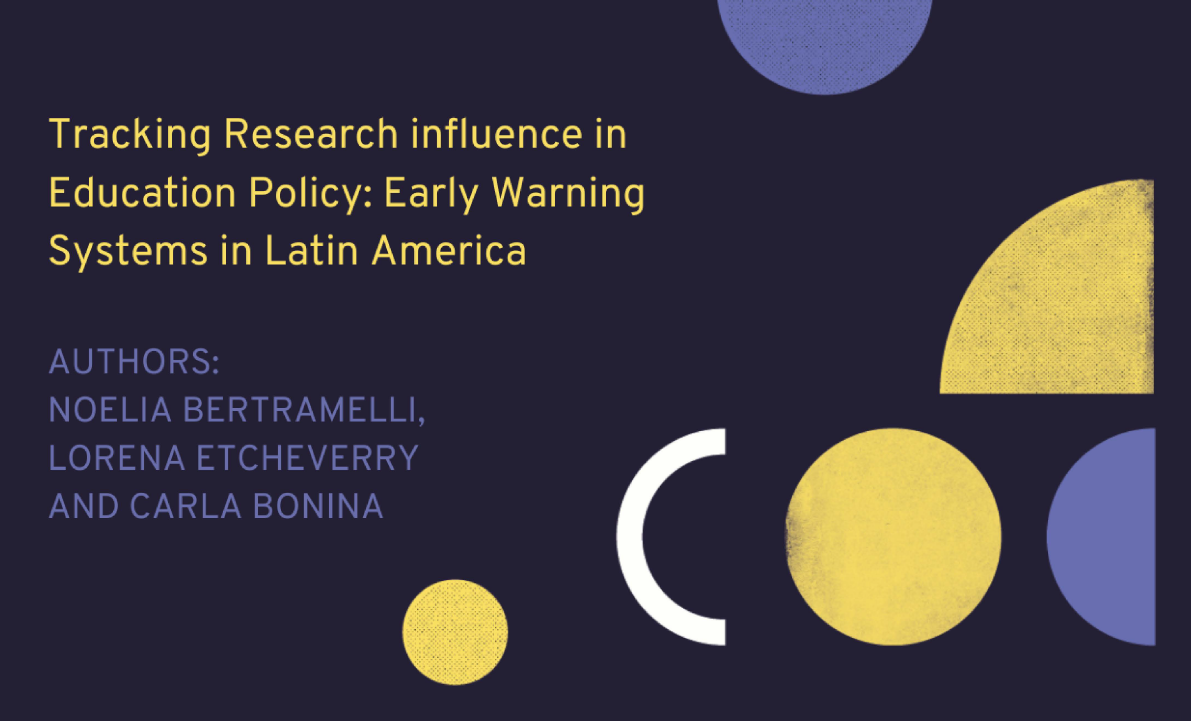In this case study, the authors Noelia Beltramelli, Lorena Etcheverry and Carla Bonina used the Overton tool to explore the evidence regarding Early Warning Systems being implemented in education in the public sector in Latin America. Both policy documents and cited scholarly articles and their main features were considered in the analysis. This report found that the geographical distribution of policy documents in Overton aligns with the literature on the subject, which explains the presence of these systems for nearly fifteen years in the United States and Europe, along with their emerging application in Latin American countries (Perusia and Cardini, 2021; Bowers, 2021). Evidence of policy documents from Latin America on this topic is scarce, mainly from Intergovernmental Organisations. Documents sourced from countries’ governments’ think tanks and others are less frequent, making it difficult to find detailed information about implementing these systems in each context. Moreover, it was found that for these searches, it was crucial to contextualise the topic for different territories.
The underpinning research cited by the policy documents comes mainly from the Global
North regarding authors’ affiliation institutions. Institutions from the Global South,
specifically Latin America, account for a small minority of the cited research. Most cited
articles were published in journals from the Social Sciences, notably about Economics and
Econometrics. The gender analysis shows that only one-third of the cited authors are
women, and only one of the seven authors with the most citations is a woman.
The authors conclude from the research on this topic that Overton is a powerful tool for tracking policy documents and finding connections between topics. Although results were limited for this specific topic, it might be more beneficial for more general searches, such as
tracking the use of AI in the public sector or the evolution of educational policies in Latin
America.
